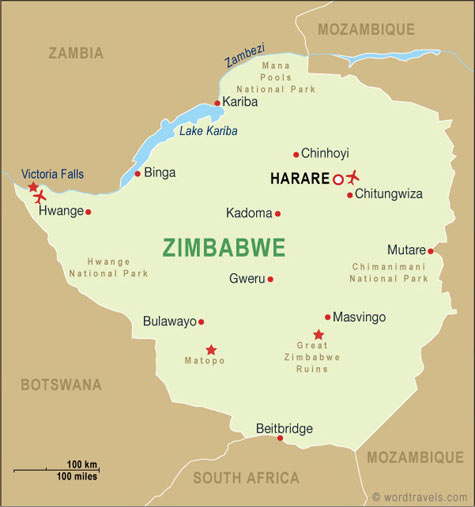Zimbabwe’s Cyber City Project featured to be the New capital City
By Abdul Rahman Bangura–

Photo Credit: Word Travels
NEW AFRICA BUSINESS NEWS (NABN) Freetown, Sierra Leone – President of Zimbabwe – Emmerson Mnangagwa asserted “This Cyber City is to be a key feature that will bring added value to our new city here. The development this year for the smart city on 15,500 acres will be the smartest city in our region,”
The futuristic Cyber City is seen to be firmly fixed in what authorities view as the new capital city or the New Harare in the Mount Hampden area, 26 kilometers Northwest of Harare.
Roughly calculated at $500 million, Zimbabwe Cyber City is being developed by United Arab Emirates-based kilometers conglomerate Mulk International.
“We’ve been trying to bring the Dubai standard of living to this particular development. The project will have high-end villas, we call them Zim Hills, surrounding water bodies. We will have a very tall tower with the shopping center,” says Shaji ul Mulk, Mulk International Chairman.
Other government offices will also be built in Mount Hampden to make the planned “New Harare” the seat of power, according to government officials.
The futuristic Cyber City is set to give the planned new capital a modern commercial face, says authorities and investors. The project covering 2.5 million square meters of land, will include 250 townhouses, more than 80 luxury villas, several locks, high-tech office facilities, a 15-story co15-story tower, as well as landscaped gardens – all within a gated community.
“The investment by the UAE (United Arab Emirates) investor in the Smart City Project is quite instrumental from the economic development point of view,” told Batanai Matsika, Head of Research, Morgan & Co.
“So of course we except business benefit, local business to benefit out of that employment creation and the development of basic infrastructure. I think what we are seeing is a huge infrastructure gap in Zimbabwe and we think that those kinds of investments would catapult us in terms of reaching our vision 2030 objectives to be a middle income nation.”
Zimbabwe is seeking to attract more foreign direct investment to strengthen its economy following the effect of the coronavirus-induced slowdown, the general investor flight following decades of western sanctions, political upheaval, policy inconsistencies and unrelenting economic problems.
Foreign Direct Investment (FDI) inflows declined to $194 million in 2020, from $745 million in 2018, before the onset of COVID-19, according to data from the UN Conference on Trade and Development.
Once complete, the new city is set to provide opportunities for shoppers and businesses, away from Harare’s crowded CBD.
For New Africa Business News (NABN) Abdul Rahman Bangura Reports, Africa Correspondent
